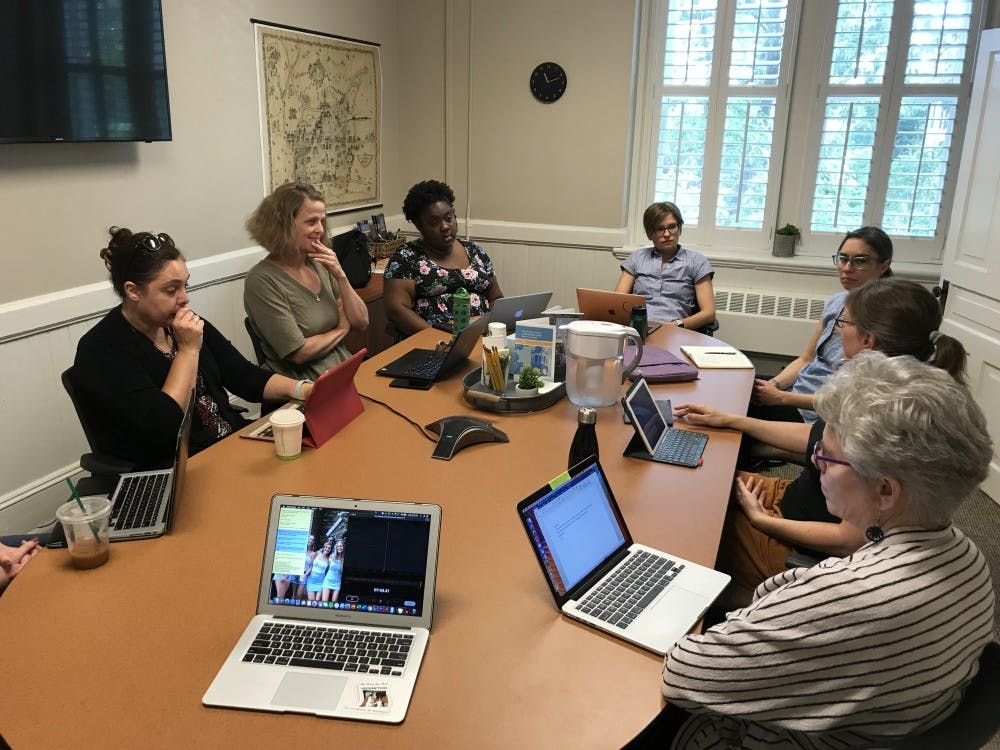Members of UNC’s Committee on the Status of Women gathered on Wednesday to discuss the gender pay gap present at the University.
Over the summer, Elizabeth Dickinson, clinical associate professor of management and corporate communication; Misha Becker, professor of linguistics; and Carol Magee, associate professor in the Department of Art and Art History, sat down with Executive Vice Provost Ronald Strauss to discuss how to close the gender pay gap at UNC.
“The first meeting with Ron Strauss was good in a sense," Becker said. "He was very receptive to the point that we were making, which was that gender salary inequity is a big problem on this campus."
Assistant professor Noah Eisenkraft authored a report, presented at the COSOW meeting in March, on the gender pay inequity at the University and found that men on the UNC faculty earned 28 percent more than women in 2017. The gap is at its highest in the medical school and lowest in the school of nursing. He concluded that the gender pay gap is an ongoing problem and that most gender pay inequity can be explained by historical, occupational and selection-promotion biases.
Becker said that in the meeting, Strauss talked about how the University addressed this issue several years ago, but it has risen in conversation again. She said Strauss was interested in discussing the topic further.
He had already spoken with Lynn Williford, assistant provost for Institutional Research and Assessment, about undertaking a new analysis of the current status of the gender pay gap on campus.
Becker said Williford also showed interest in tackling the present challenges with the gender pay gap. Those present at the meeting said women tend to be in lower paying disciplines, but they believe the University can make an effort to undo those kinds of inequities.
The committee said it is important to keep the issue on people's minds, especially department leaders. Because chairpeople have the power to determine individual raises within their departments, any mandate for reducing gender salary inequity in the annual raise process would need to be communicated to them.
One of the committee's primary goals earlier in the year was to initiate a task force that would work to recognize, research, retain and repair the gender inequity in pay -- presented as the four "Rs." Among other recommendations to address the gap, COSOW calls the administration and faculty members to recognize that there is a gender pay gap among faculty at the University.




